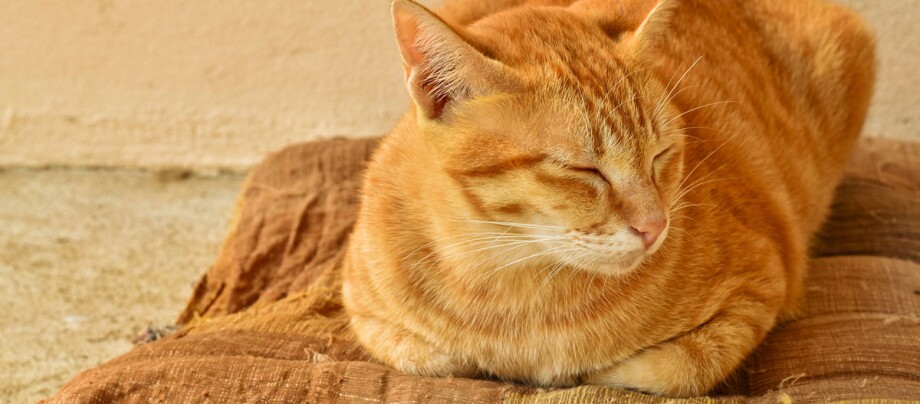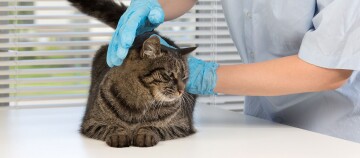Cat Liver Tumour - Not Every Tumour Is the Same. What You Should Know
13.10.2022 - Reading time: 3 minutes

If your vet detects a liver tumour in your cat, that is a big shock. As a pet owner you now have to make important decisions and in the worst case scenario deal with thoughts of letting your precious one go.
Not every tumour is the same. Some types can be treated relatively well, while some are fatal. In the treatment of your four-legged friend, it is primarily a case of which kind of liver tumour is involved and how far the growth has already advanced. The age and health condition of your cat also plays a big role in the evaluation of the chances of recovery.
Liver tumour in cats - these symptoms are typical
For tumour illnesses of the liver, your house cat generally exhibits general signs of illness like:
- Tiredness and exhaustion
- Loss of appetite and weight loss
- Dull fur
- Vomiting and fever
In addition, special symptoms can indicate that the liver is affected. This includes:
- jaundice, which colours the eyes and mucous membranes yellow
- swelling of the abdominal girth with fluid build-up in the abdominal cavity (ascites)
- unusually aggressive behaviour, also towards you
If your cat shows these general symptoms for several days or if there are special signs of liver disease in addition to this, you should immediately see a vet. The doctor can take a close look at your velvet paws and make diagnosis with the aid of blood testing and urine testing, x-rays and/or ultrasound. A sample of the tissue in the tumour gives them important information about the exact type and characteristics.
Liver tumour or liver cancer - these are the differences
Tumours in your cat’s liver occur when the body’s cells grow and spread unchecked. They displace healthy tissue over time, and prevent the organ from doing its job. The vet differentiates between malignant and benign tumours. Malignant tumours metastasise in the body and infiltrate healthy tissue. Conversely, benign growths become encapsulated and do not metastasise. In colloquial language, cancer generally refers to malignant tumours.
If the vet finds a tumour in your cat’s liver, this is initially only a sign of uncontrolled tissue growth. Further examinations are needed in order to identify whether a harmless growth or liver cancer is involved.
What should you do for a cat with a liver tumour?
There are two options for determining which type of liver tumour your kitty has:
1. The tumour is treatable and the vet discusses the exact course of treatment with you. Your four-legged friend has a very good chance of recovery if the liver tumour is found at an early stage and only one part of the liver is affected. In this case, the vet removes the diseased tissue from the liver. For a malignant growth, chemotherapy is used to ensure that no tumour cells remain in the body.
2. The tumour is not treatable or your cat is already very weak and emaciated. Treatment with surgery, chemotherapy or radiation would be a great strain for them. In such cases, it is a matter of offering them pain-free time with good quality of life before you have to put your cat down.
Liver tumours in cats: life expectancy and chances of recovery
For a tumour in the liver, it is very difficult to make a prediction of the life expectancy. In general, the chances of recovery are greater the earlier the vet identifies the cancer. If your cat is also young and fit then it has a good chance to get healthy again.
If the tumour has already affected the entire liver and/or metastasised. the cancerous cells cannot be completely removed and recovery is no longer possible. In this case, the vet tries medication to alleviate the symptoms so that you still have as much time left as possible with your cat.
What you can do for your cat
Regardless of whether the liver tumour is treatable or not, the general health condition of your cat can improve when you offer special food. It is formulated to decrease stress on the damaged liver, supply the cat with sufficient energy and provide it with many important vitamins and minerals.
These types of food have:
- easily digestible protein components that form very few toxins
- high carbohydrate and fat content
- carefully coordinated vitamin and nutrition complex



